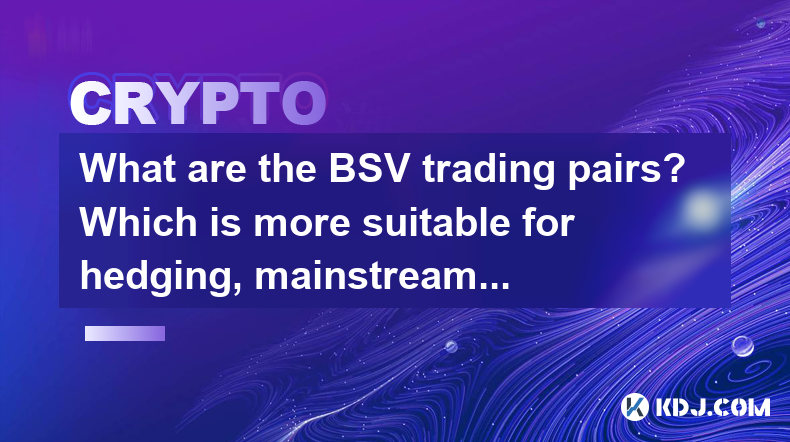-
 Bitcoin
Bitcoin $95,696.5918
-0.67% -
 Ethereum
Ethereum $1,837.7807
-0.02% -
 Tether USDt
Tether USDt $1.0004
0.00% -
 XRP
XRP $2.1817
-0.61% -
 BNB
BNB $589.3614
-1.71% -
 Solana
Solana $146.8366
-0.46% -
 USDC
USDC $1.0002
0.01% -
 Dogecoin
Dogecoin $0.1730
-2.32% -
 Cardano
Cardano $0.6883
-3.58% -
 TRON
TRON $0.2474
0.70% -
 Sui
Sui $3.3099
-0.24% -
 Chainlink
Chainlink $14.1306
-1.97% -
 Avalanche
Avalanche $20.1298
-3.42% -
 UNUS SED LEO
UNUS SED LEO $9.0720
1.37% -
 Stellar
Stellar $0.2690
-1.55% -
 Toncoin
Toncoin $3.0569
-1.70% -
 Hedera
Hedera $0.1784
-2.17% -
 Shiba Inu
Shiba Inu $0.0...01279
-2.35% -
 Bitcoin Cash
Bitcoin Cash $356.5201
-2.65% -
 Hyperliquid
Hyperliquid $20.4167
-4.11% -
 Litecoin
Litecoin $86.5763
-0.54% -
 Polkadot
Polkadot $3.9611
-2.43% -
 Dai
Dai $1.0001
0.01% -
 Monero
Monero $276.4771
-1.16% -
 Bitget Token
Bitget Token $4.3537
-0.63% -
 Ethena USDe
Ethena USDe $1.0004
-0.02% -
 Pi
Pi $0.5911
1.05% -
 Pepe
Pepe $0.0...08165
-1.21% -
 Uniswap
Uniswap $5.0891
-0.96% -
 Aptos
Aptos $5.1382
-1.86%
What are the BSV trading pairs? Which is more suitable for hedging, mainstream currencies or stablecoins?
BSV can be traded against USD, BTC, ETH, USDT, and BUSD on major exchanges, each offering different benefits for liquidity, speed, and stability in trading strategies.
May 04, 2025 at 11:14 pm

In the world of cryptocurrency trading, Bitcoin SV (BSV) is a notable digital asset that has garnered attention due to its unique features and trading pairs. BSV, a fork of Bitcoin Cash, aims to fulfill the original vision of Bitcoin as a peer-to-peer electronic cash system. This article will explore the various BSV trading pairs available on different exchanges and discuss which type of currency—mainstream currencies or stablecoins—is more suitable for hedging purposes.
BSV Trading Pairs on Major Exchanges
Bitcoin SV (BSV) can be traded against a variety of assets on different cryptocurrency exchanges. The choice of trading pairs can significantly impact trading strategies, liquidity, and potential returns. Here are some of the most common BSV trading pairs available on major exchanges:
- BSV/USD: This pair allows traders to directly exchange BSV for the US dollar, making it one of the most straightforward options for those looking to convert their cryptocurrency into fiat currency.
- BSV/BTC: Trading BSV against Bitcoin (BTC) is popular among crypto enthusiasts who wish to diversify their holdings within the cryptocurrency ecosystem.
- BSV/ETH: Similar to BSV/BTC, the BSV/ETH pair offers trading opportunities against Ethereum, another major cryptocurrency.
- BSV/USDT: This pair involves trading BSV against Tether (USDT), a stablecoin pegged to the US dollar, which can provide more stability compared to trading against other cryptocurrencies.
- BSV/BUSD: Another stablecoin pair, BSV/BUSD involves trading against Binance USD, which is also pegged to the US dollar.
Understanding BSV/USD Trading
The BSV/USD trading pair is one of the most direct ways to engage with BSV. This pair is particularly useful for traders who want to convert their BSV holdings into US dollars or vice versa. Trading against USD can be advantageous in terms of liquidity, as the US dollar is the world's reserve currency and is widely used in global trade.
To trade BSV/USD, follow these steps:
- Select a reputable exchange that offers the BSV/USD trading pair. Examples include Coinbase, Kraken, and Bitfinex.
- Create an account and complete the necessary verification processes, which may include KYC (Know Your Customer) procedures.
- Deposit funds into your account, either by transferring BSV or depositing USD.
- Navigate to the trading section of the exchange and select the BSV/USD pair.
- Place an order to buy or sell BSV against USD, choosing between market orders, limit orders, or other types of orders available on the exchange.
BSV/BTC and BSV/ETH: Trading Against Major Cryptocurrencies
Trading BSV against major cryptocurrencies like Bitcoin (BTC) and Ethereum (ETH) can be an effective way to diversify a crypto portfolio. These pairs are popular among traders who are more comfortable operating within the cryptocurrency ecosystem and who may not need to convert their assets into fiat currency.
To trade BSV/BTC or BSV/ETH, follow these steps:
- Choose an exchange that supports these trading pairs, such as Binance, Huobi, or OKEx.
- Register and verify your account, ensuring compliance with the exchange's requirements.
- Fund your account with either BSV, BTC, or ETH, depending on which asset you wish to trade.
- Access the trading platform and select the appropriate trading pair.
- Execute your trade by placing an order to buy or sell BSV against BTC or ETH.
BSV/USDT and BSV/BUSD: Trading Against Stablecoins
Trading BSV against stablecoins like Tether (USDT) and Binance USD (BUSD) can provide a level of stability that is not always present when trading against other cryptocurrencies. Stablecoins are designed to minimize volatility by being pegged to a stable asset, usually the US dollar.
To trade BSV/USDT or BSV/BUSD, follow these steps:
- Select an exchange that offers these trading pairs, such as Binance, Huobi, or OKEx.
- Sign up and verify your account according to the exchange's guidelines.
- Deposit funds into your account, using BSV, USDT, or BUSD as needed.
- Go to the trading section and choose the BSV/USDT or BSV/BUSD pair.
- Place your order to buy or sell BSV against the chosen stablecoin.
Hedging with Mainstream Currencies vs. Stablecoins
When it comes to hedging, traders often face the decision of whether to use mainstream currencies like the US dollar or stablecoins like USDT and BUSD. Each option has its own set of advantages and considerations.
Mainstream currencies, such as the US dollar, offer the benefit of being widely recognized and accepted globally. They are backed by governments and central banks, which can provide a sense of security and stability. However, trading against mainstream currencies may involve more complex processes, such as dealing with bank transfers and potential delays in fund availability.
Stablecoins, on the other hand, are designed to maintain a stable value by being pegged to a specific asset, often the US dollar. This stability can make them an attractive option for hedging against the volatility of cryptocurrencies like BSV. Trading stablecoins is typically faster and more straightforward than dealing with mainstream currencies, as it can be done entirely within the cryptocurrency ecosystem.
To decide which option is more suitable for hedging, consider the following factors:
- Liquidity: Stablecoins generally offer higher liquidity within the cryptocurrency market, making them easier to trade in large volumes.
- Speed: Trading stablecoins is often faster and more convenient than dealing with mainstream currencies, which may require additional steps like bank transfers.
- Stability: Both mainstream currencies and stablecoins can provide stability, but stablecoins are specifically designed to minimize volatility.
- Regulatory considerations: Mainstream currencies are subject to government regulations, while stablecoins operate within the less regulated cryptocurrency space.
Frequently Asked Questions
Q1: Can BSV be traded on decentralized exchanges (DEXs)?
Yes, BSV can be traded on some decentralized exchanges, although the availability of trading pairs may be more limited compared to centralized exchanges. Examples of DEXs that may support BSV trading include Uniswap and SushiSwap.
Q2: What are the fees associated with trading BSV?
Fees for trading BSV can vary depending on the exchange and the specific trading pair. Generally, centralized exchanges charge a percentage-based fee for each trade, while decentralized exchanges may charge a fee based on the transaction's gas costs on the blockchain.
Q3: How can I monitor the performance of my BSV trading pairs?
To monitor the performance of your BSV trading pairs, you can use trading platforms provided by exchanges, which often include real-time charts and analytics tools. Additionally, third-party cryptocurrency tracking apps and websites, such as CoinGecko and CoinMarketCap, can provide detailed insights into BSV's performance across different trading pairs.
Q4: Are there any risks specific to trading BSV?
Yes, trading BSV comes with several risks, including market volatility, regulatory changes, and potential security issues on exchanges. It's important to conduct thorough research and consider these risks before engaging in BSV trading.
Disclaimer:info@kdj.com
The information provided is not trading advice. kdj.com does not assume any responsibility for any investments made based on the information provided in this article. Cryptocurrencies are highly volatile and it is highly recommended that you invest with caution after thorough research!
If you believe that the content used on this website infringes your copyright, please contact us immediately (info@kdj.com) and we will delete it promptly.
- A series of recent Department of Defense decisions could make it harder for women to serve in combat roles.
- 2025-05-05 04:20:14
- Brits could make £200 if they find two of the UK's 'rarest' coins in their change
- 2025-05-05 04:15:12
- Dungannon Swifts captain Rory Hale was left dumbfounded by a decision by the IFA not to conduct a coin toss to decide what end penalties would be taken at
- 2025-05-05 04:15:12
- Remittix Price Prediction is Gaining Traction as Traders Flock Back to ETH, Spurred by Renewed Interest in the Market
- 2025-05-05 04:10:12
- Shiba Inu (SHIB) Could Cancel Two Zeros If Elon Musk Promotes It Like Dogecoin (DOGE), Historical Data Shows
- 2025-05-05 04:10:12
- The price of Ethena remained under pressure on Saturday as traders awaited the next monthly token unlock.
- 2025-05-05 04:05:12
Related knowledge

BSV transaction fees suddenly increased? How to adjust the handling fee to save costs?
May 02,2025 at 06:42am
Understanding BSV Transaction FeesBSV (Bitcoin SV) aims to fulfill the original vision of Bitcoin as a peer-to-peer electronic cash system. One of the key elements in this system is the transaction fee, which compensates miners for including transactions in the blockchain. Recently, users have noticed a sudden increase in BSV transaction fees, which can...

Does BSV transaction require real-name authentication? Is anonymous trading feasible?
May 03,2025 at 03:14pm
The question of whether BSV (Bitcoin SV) transactions require real-name authentication and whether anonymous trading is feasible is a complex one, deeply intertwined with the broader dynamics of cryptocurrency regulations and blockchain technology. Let's delve into these aspects to provide a comprehensive understanding. Understanding BSV and Its Transac...

How to solve the high slippage of BSV transactions? How to choose between limit and market orders?
May 02,2025 at 09:01pm
High slippage can be a significant concern for traders dealing with Bitcoin SV (BSV) transactions. Slippage refers to the difference between the expected price of a trade and the price at which the trade is actually executed. This can occur in fast-moving markets or when there is low liquidity. To address this issue, understanding the mechanics of slipp...

What if BSV transactions are frozen? How to contact customer service to unblock the account?
May 05,2025 at 05:01am
When dealing with Bitcoin SV (BSV) transactions, encountering issues such as frozen transactions can be a stressful experience. This article will guide you through the process of understanding why BSV transactions might be frozen and how to contact customer service to unblock your account. We will cover the reasons behind frozen transactions, steps to t...

What if BSV node synchronization is slow? How to optimize local wallet performance?
May 03,2025 at 04:35pm
When dealing with BSV (Bitcoin SV) node synchronization and optimizing local wallet performance, it's crucial to understand the underlying issues and implement effective solutions. Slow synchronization and poor wallet performance can significantly hinder your experience with the BSV network. This article will delve into the reasons behind slow BSV node ...

How to check BSV transaction records? How to use the blockchain browser?
May 03,2025 at 06:50am
Checking BSV (Bitcoin SV) transaction records and using a blockchain browser are essential skills for anyone involved in the cryptocurrency space. These tools allow you to verify transactions, check wallet balances, and understand the flow of funds on the blockchain. This article will guide you through the process of checking BSV transaction records and...

BSV transaction fees suddenly increased? How to adjust the handling fee to save costs?
May 02,2025 at 06:42am
Understanding BSV Transaction FeesBSV (Bitcoin SV) aims to fulfill the original vision of Bitcoin as a peer-to-peer electronic cash system. One of the key elements in this system is the transaction fee, which compensates miners for including transactions in the blockchain. Recently, users have noticed a sudden increase in BSV transaction fees, which can...

Does BSV transaction require real-name authentication? Is anonymous trading feasible?
May 03,2025 at 03:14pm
The question of whether BSV (Bitcoin SV) transactions require real-name authentication and whether anonymous trading is feasible is a complex one, deeply intertwined with the broader dynamics of cryptocurrency regulations and blockchain technology. Let's delve into these aspects to provide a comprehensive understanding. Understanding BSV and Its Transac...

How to solve the high slippage of BSV transactions? How to choose between limit and market orders?
May 02,2025 at 09:01pm
High slippage can be a significant concern for traders dealing with Bitcoin SV (BSV) transactions. Slippage refers to the difference between the expected price of a trade and the price at which the trade is actually executed. This can occur in fast-moving markets or when there is low liquidity. To address this issue, understanding the mechanics of slipp...

What if BSV transactions are frozen? How to contact customer service to unblock the account?
May 05,2025 at 05:01am
When dealing with Bitcoin SV (BSV) transactions, encountering issues such as frozen transactions can be a stressful experience. This article will guide you through the process of understanding why BSV transactions might be frozen and how to contact customer service to unblock your account. We will cover the reasons behind frozen transactions, steps to t...

What if BSV node synchronization is slow? How to optimize local wallet performance?
May 03,2025 at 04:35pm
When dealing with BSV (Bitcoin SV) node synchronization and optimizing local wallet performance, it's crucial to understand the underlying issues and implement effective solutions. Slow synchronization and poor wallet performance can significantly hinder your experience with the BSV network. This article will delve into the reasons behind slow BSV node ...

How to check BSV transaction records? How to use the blockchain browser?
May 03,2025 at 06:50am
Checking BSV (Bitcoin SV) transaction records and using a blockchain browser are essential skills for anyone involved in the cryptocurrency space. These tools allow you to verify transactions, check wallet balances, and understand the flow of funds on the blockchain. This article will guide you through the process of checking BSV transaction records and...
See all articles




















































































